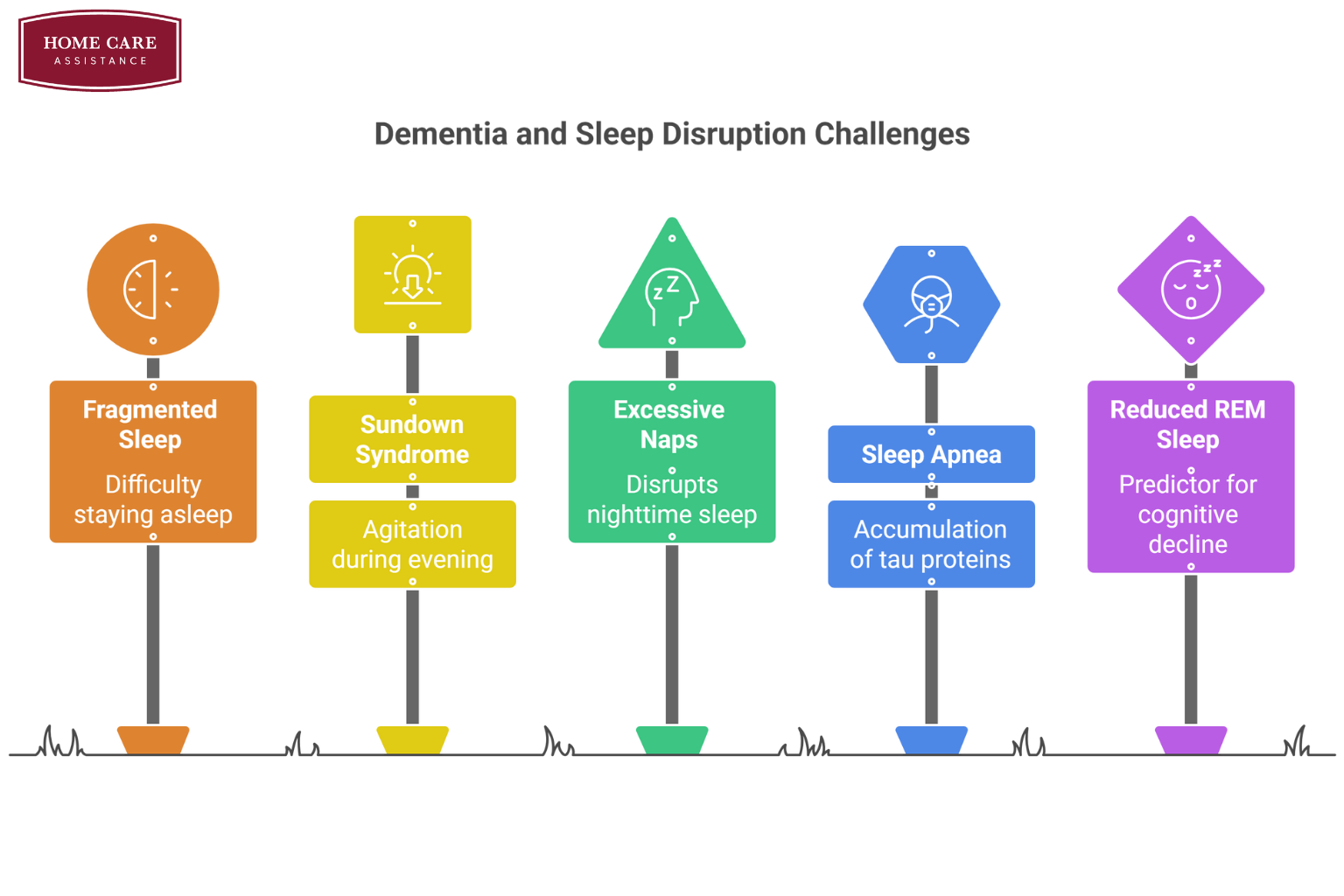
Table of Content
Sleep plays a crucial role in maintaining cognitive health, yet many individuals with dementia experience significant sleep disturbances. Research continues to shed light on how the relationship between sleep and dementia is more interconnected than previously thought. Below, we’ll explore the key aspects of this link and what it means for managing the condition.
The Role of Sleep in Brain Health
Sleep is essential for the brain’s ability to function effectively. During deep sleep, the brain undergoes a “cleaning process,” clearing out waste products like amyloid-beta proteins, which are associated with Alzheimer’s disease. Insufficient or poor-quality sleep can disrupt this critical cleansing function, increasing the risk of cognitive decline over time.
Additionally, certain stages of sleep, such as REM sleep, are vital for memory consolidation and processing emotions. The persistent lack of these restorative sleep phases can accelerate brain aging and make it harder to retain new information.
How Dementia Affects Sleep Patterns
One of the significant side effects of dementia is its impact on sleep patterns. People with dementia often experience changes to their internal body clocks, also known as circadian rhythms. This disruption can lead to conditions such as insomnia, excessive daytime sleepiness, or irregular sleep-wake cycles.
For example:
- Fragmented sleep – Many individuals with dementia have difficulty staying asleep through the night, waking up frequently.
- Sundown syndrome – A phenomenon where individuals become more restless or agitated during the evening hours is common in dementia.
- Excessive naps – The need to nap frequently during the day further disrupts evening sleep, creating a cycle of poor rest.
Caring for a loved one with dementia can be challenging, but compassionate help is available. If your senior loved one has been diagnosed with a serious condition and needs help with tasks like meal prep, transportation, bathing, and grooming, reach out to Home Care Assistance, a leading provider of homecare families can trust. We also offer comprehensive care for seniors with dementia, Alzheimer’s, and Parkinson’s.
Sleep Disruption as a Potential Early Sign of Dementia
Studies suggest sleep disruption could act as an early warning sign for dementia before cognitive symptoms become apparent. Chronic insomnia and other sleep disorders, such as sleep apnea, have been linked to an increased risk of developing dementia later in life.
For example:
- People with sleep apnea, a condition where breathing stops briefly during sleep, are more prone to accumulate tau proteins in the brain, a hallmark of Alzheimer’s.
- Reduced REM sleep has also been identified as a predictor for cognitive decline.
Recognizing and addressing sleep issues early could potentially delay the onset of dementia or reduce its severity.
When you understand the causes of your loved one’s sleep difficulties, you can help him or her sleep better and enhance his or her overall wellbeing. Seniors who want to remain healthy as they age can benefit in a variety of ways when they receive professional elderly home care. Richmond, VA, Home Care Assistance is here to help your loved one accomplish daily tasks, prevent illness, and focus on living a healthier and more fulfilling life.
The Impact of Sleep Disorders on Dementia Progression
For people already diagnosed with dementia, sleep disorders can exacerbate symptoms. Poor sleep can amplify problems with memory, mood, and overall cognitive function, further affecting quality of life.
Caregivers often report sleep issues make it harder to manage the day-to-day care of a person with dementia, which increases caregiver stress. This highlights the importance of addressing sleep problems as part of a comprehensive care plan.
Strategies to Enhance Sleep for Individuals with Dementia
While there’s no one-size-fits-all solution, specific strategies can support better sleep hygiene for individuals with dementia. Here are some evidence-based recommendations:
- Maintain a routine – Encourage consistent sleep and wake times to regulate circadian rhythms.
- Limit daytime naps – Reducing naps can promote nighttime sleep readiness.
- Enhance the sleep environment – Create a space free of distractions, ensuring it’s dark, quiet, and comfortable.
- Address underlying conditions – Treat any pain, discomfort, or medical conditions like sleep apnea that may disrupt sleep.
- Promote light exposure – Sunlight during the day can regulate melatonin production and enhance sleep patterns.
Furthermore, practices like engaging in relaxing activities during the evening or a light exercise routine earlier in the day may help you manage agitation and reduce nighttime restlessness.
Dementia can be challenging for seniors to manage, but they can maintain a higher quality of life with the help of professional dementia care. Richmond seniors can benefit greatly from the Cognitive Therapeutics Method (CTM), an activities-based program designed to promote cognitive health and delay the onset of dementia. CTM is included at no additional charge with any of the in-home care plans provided by Home Care Assistance. If you need professional home care for your loved one, our Care Managers are just a phone call away. Reach out to Home Care Assistance today at (804) 207-4746.
